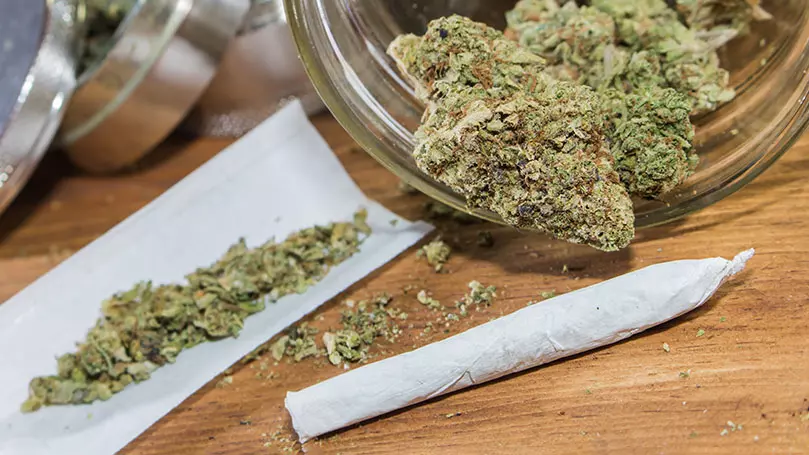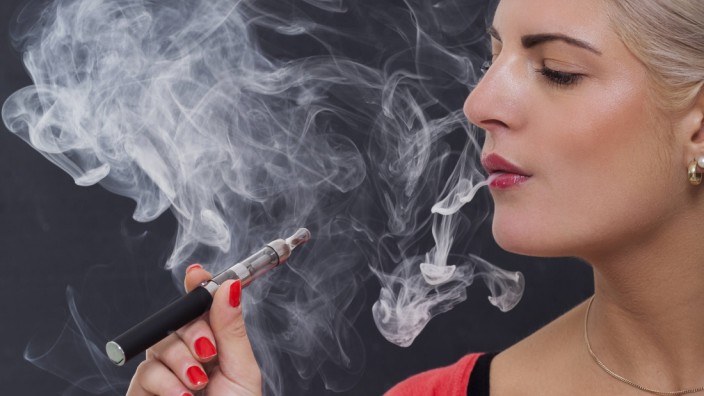
The legalization of cannabis appears to result in higher rates of cannabis poisoning. Children in particular are at higher risk, reports a research team in the journal Addiction.
The review brings together the results of 30 studies that collectively show an overall increase in intoxications following cannabis legalization or decriminalization. In studies looking at the medical use of cannabis, the risk of poisoning was higher than in studies looking at recreational use. However, studies that did not show an overall increase in poisoning often revealed a higher risk in analyzes of subgroups, e.g. B. in children or in people who have been admitted to the intensive care unit.
dr Rose Cairns from the University of Sydney summarized: “Although the results of the studies are quite mixed, almost all point to an increase in cannabis poisoning after a change in cannabis laws.” It is likely that legalization will increase cannabis use, leading to an increase in poisoning. Maybe more people are thinking: If it's legal, it must be safe.
Cairns further stated: “The increasing use of edibles such as jelly beans and chocolate containing cannabis appears to be an important factor in the increase in cases of poisoning, particularly among children. The effects of edible cannabis come later than smoking. This leads to a higher risk of poisoning as people tend to consume larger amounts. This is worrying because such edibles are particularly appealing to children.”
Cannabis intoxication causes lethargy, drowsiness, dizziness, high blood pressure, palpitations, increased heart rate, nausea, vomiting, irritability, restlessness, coma, and central nervous system slowdown. In children, the risk of severe poisoning up to and including coma and severe effects on the nervous and cardiovascular systems is particularly high.
Quelle: DOI 10.1111/add.16280

High cannabis use is associated with certain mental illnesses. Using the example of schizophrenia, researchers are now showing how significantly the risk can increase as a result of heavy smoking.
Copenhagen - In young men, up to 30 percent of all cases of schizophrenia are likely to be linked to problematic cannabis use. This is what researchers write in the journal Psychological Medicine.

Regular drinking can harm your body more than the occasional joint. However, cannabis is not harmless.
The planned legalization of cannabis is constantly in the news. Some experts fully support the plans outlined in the coalition agreement, while others are more critical. Many are afraid of being in drunken company – as long as cannabis is freely available. Expert Kirsten Müller-Vahl, on the other hand, believes that the drug could definitely be legalized. In fact, there are significantly greater risks associated with alcohol consumption than with cannabis. But what are the real risks of using marijuana? And how do they relate to legal drugs like alcohol?
Menthol flavors have been linked to poorer lung function in e-cigarette users, researchers report in the journal Respiratory Research. This is probably because they produce more toxic microparticles when used compared to menthol liquids.
Using specially designed machines that closely mimic human breathing when vaping e-cigarettes, the research team was able to show that using e-cigarette liquids containing menthol produces more toxic microparticles than other flavors. A study of a group of e-cigarette smokers found that menthol vapers had lower respiratory rates and poorer lung function than those using non-menthol products.
Although the sale of traditional menthol cigarettes has been banned across Europe for years, the market for e-cigarettes is growing worldwide, with mint and menthol flavors popular with young people. However, menthol additives can be just as dangerous as vitamin E acetate, which has been linked to lung damage in e-cigarette users. Vitamin E acetate is a common additive in e-liquids that contain cannabinoids. It produces toxic small particles that penetrate the narrowest airways and mucous membranes of the lungs.
“Many people, especially teenagers, mistakenly believe that vaping electronic cigarettes is safe. But even nicotine-free e-liquids contain many compounds that can damage your lungs. Just because something is safe to eat doesn't mean it's safe to inhale,” said Prof. Dr. Kambez H. Benam from the University of Pittsburgh. He advises young adults who have never smoked to be aware of the risks: “Transition . . E-cigarettes can be a better and safer alternative for someone trying to quit smoking traditional tobacco products. However, it is important to fully understand the risks and benefits of e-cigarettes.
Translated by Gift
Quelle: DOI10.1186/s12931-023-02410-9
Quick search
